Linda Reynolds forced to scramble as Donald Trump threatens Joint Strike Fighter plans
Australia to ‘reinforce’ its value to Joint Strike Fighter program after Trump push to end offshore manufacturing.
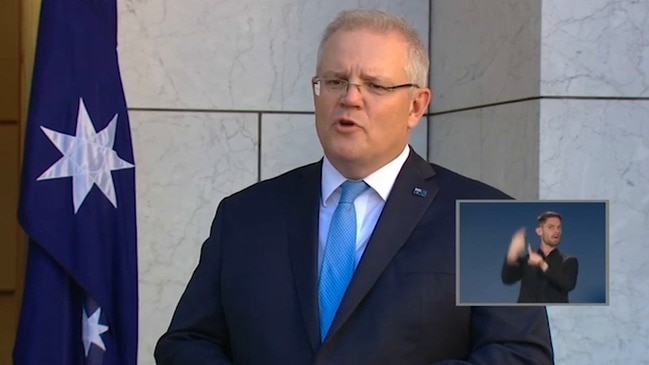
The federal government is scrambling to deal with the fallout from US President Donald Trump’s threats to end offshore manufacturing of components for the Joint Strike Fighter, which puts thousands of Australian jobs at risk.
Defence Minister Linda Reynolds confirmed on Friday Australia would contact the Trump administration to “reinforce” Australia’s value to the program.
On Thursday night, the US President threatened to end international work on the Joint Strike Fighter program, which defence industry sources say could throw significant uncertainty over future work, despite Scott Morrison dismissing concerns that Australian manufacturers could lose billions in contracts.
Australian jobs and billions in contracts are in doubt after Donald Trump's threat to end offshore manufacturing for the Joint Strike Fighter. https://t.co/ivGuC6iahd
— Business Review (@aus_business) May 14, 2020
The Prime Minister said Mr Trump’s comments about ending overseas manufacturing of parts of the F-35 warplane should be viewed with caution, and that Australia could rely on current arrangements. “We’ll see what occurs there as it rolls out,” he said. “But we have our contracts and arrangements in place for all of those matters, so we’ll continue to pursue them in the normal way.
“So I would caution against getting too far ahead of oneself when it comes to reading into the statements that have been made.”
Senator Reynolds said on Friday that Australia would “engage” with US officials to reinforce Australia’s role in the program.
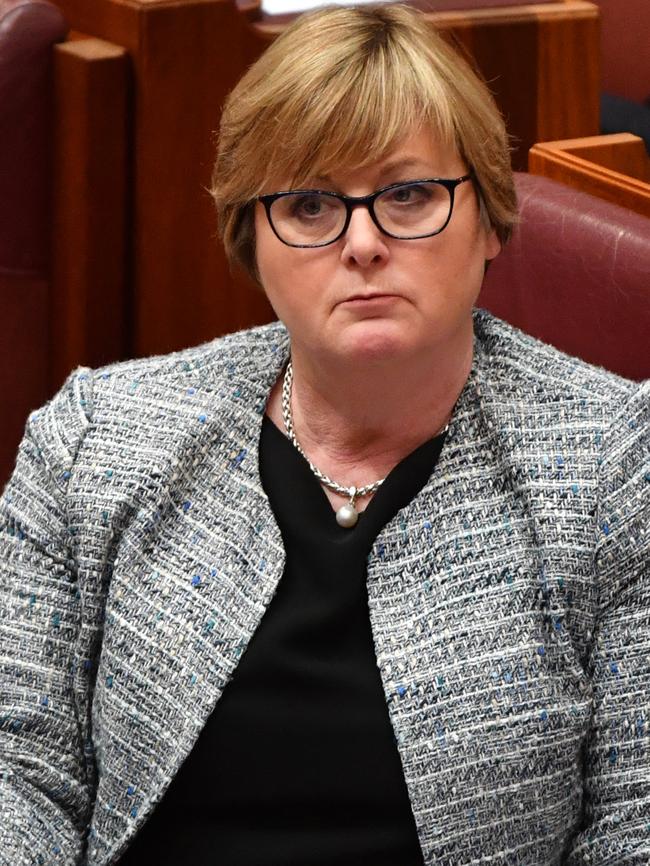
“The government continues to advocate for more opportunities for more Australian industry participation in the global F-35 program; Defence is engaging with US officials to reinforce this message,” she said.
Under the JSF project, Australia has agreed to buy 72 of the aircraft as part of a $17bn program to replace the ageing F/A-18A/B Classic Hornets, which have been in RAAF service since 1985.
In return, Australia has won about $1.7bn worth of contracts for parts and services to the program, with more than 50 Australian companies winning contracts.
Senior defence industry executives played down the likelihood of the US making good on Mr Trump’s threat, dismissing it as pre-election posturing. But some expressed concerns his comments added weight to US moves towards economic nationalism that could throw uncertainty over Australia’s ability to win future defence work.
“If you were sitting in a corporate office in the US looking at a contract, you’d have to be thinking about those comments before you signed it,” one senior defence industry executive said.
In an interview with Fox News on Thursday night, Mr Trump criticised the decision to spread manufacturing of the F-35 across US allies as “crazy”, saying he would change US policy to bring construction of the fighter jets back to US factories.
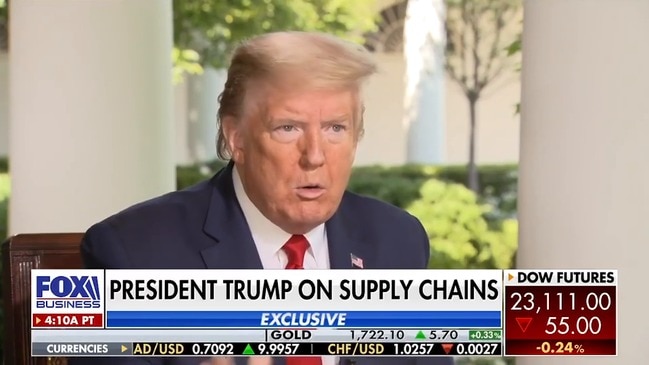
“As an example, we’re making a fighter jet. It’s a certain fighter jet, I won’t tell you which, but it happens to be the F-35,” he said.
“It’s a great jet, and we make parts for this jet all over the world. We make them in Turkey, we make them here, we’re going to make them there.
“All because President (Barack) Obama and others — I’m not just blaming him — thought it was a wonderful thing. The problem is, if we have a problem with a country, you can’t make the jet. We get parts from all over the place.
“It’s so crazy. We should make everything in the United States. We’re doing it because I’m changing all those policies.”
Senior defence industry executives, who said they could not comment on the record, said Mr Trump’s comments were likely to be little more than posturing ahead of the US election.
“It sounds impossible to implement. But if it were US government policy, it would have a big impact here,” one said.
If carried through, the move would throw a key plank of the government’s defence industry policy into disarray, potentially threatening thousands of local jobs through the cancellation of billions in manufacturing and support contracts with Australian companies.
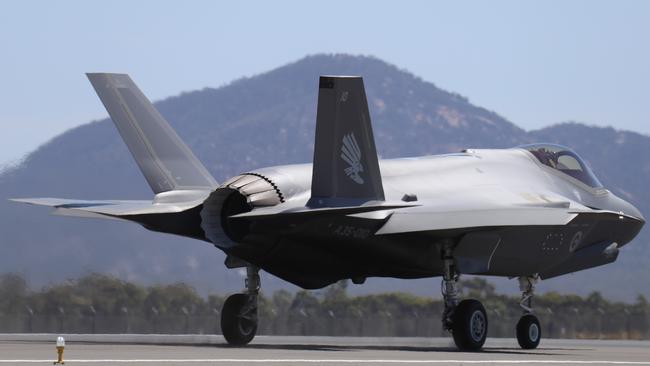
Defence sector lobby group Industry Voice warned that the threat would throw the entire project into chaos if it were carried out. “Every member country that signed up under a certain regime; there were premiums paid to have the manufacturing done the way they did it,” said chief executive Brent Clark. “The only logical thing would be for the Australian government to suspend the contract and renegotiate the whole thing. It would be madness.”
Senator Reynolds has said the program has already created almost 2400 local jobs, and that Australia’s partnership in the F-35 program would create more than 5000 jobs by 2023.
Last June, Mr Trump kicked Turkey out of the JSF program after the NATO ally elected to buy a Russian air-defence system.
The decision came at a substantial cost to the program, with the US government audit office recently estimating it would add an additional $US1.5bn to annual manufacturing costs. But the Trump administration has shown no signs of backing away from that decision.
Opposition defence spokesman Richard Marles urged the government to ensure the JSF contracts were secure. “We would expect the minister to be working around the clock to ensure these contracts with Australian defence companies are secure,” he said.
“It is really important that we hear from the minister on this, to provide certainty to the companies and their workers.”
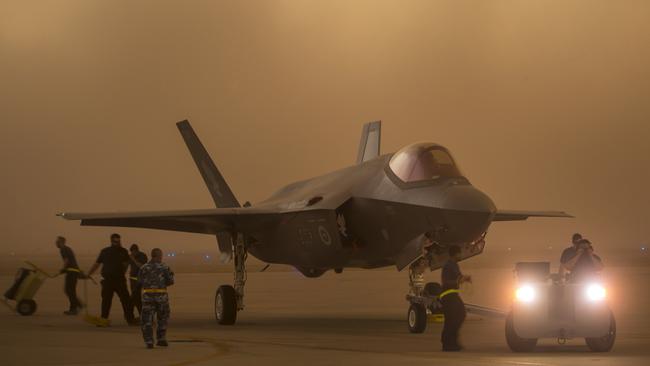
The US is also involved in a row with Britain, another key manufacturing partner for the JSF, with Republican senators reportedly weighing up a plan to pull the deployment of the warplanes to US bases in England over the British government’s decision to allow Huawei a role in the country’s 5G network.
Australian Strategic Policy Institute defence program director Michael Shoebridge said Turkey was the “weakest link” in the JSF supply chain, but Australia was likely the strongest.
“We would be the last partner standing, because we are probably the most reliable and trusted part of the supply chain,” Mr Shoebridge said. He said the “every partner gets a prize” approach had highlighted the risks of dispersed global supply chains, especially in the post-COVID world.
But he said Australia could benefit in the long term if the US were aiming to tighten the circle of JSF suppliers.
“The US onshoring instinct is a risk but also an opportunity for Australia to be a trusted partner supplier, not just on JSF, and our reliability has only been enhanced by the way our nation has managed the pandemic,” he said.
“We are very unlikely to lose JSF production work because we are such a reliable supplier and partner, both with Lockheed Martin and the US government.”

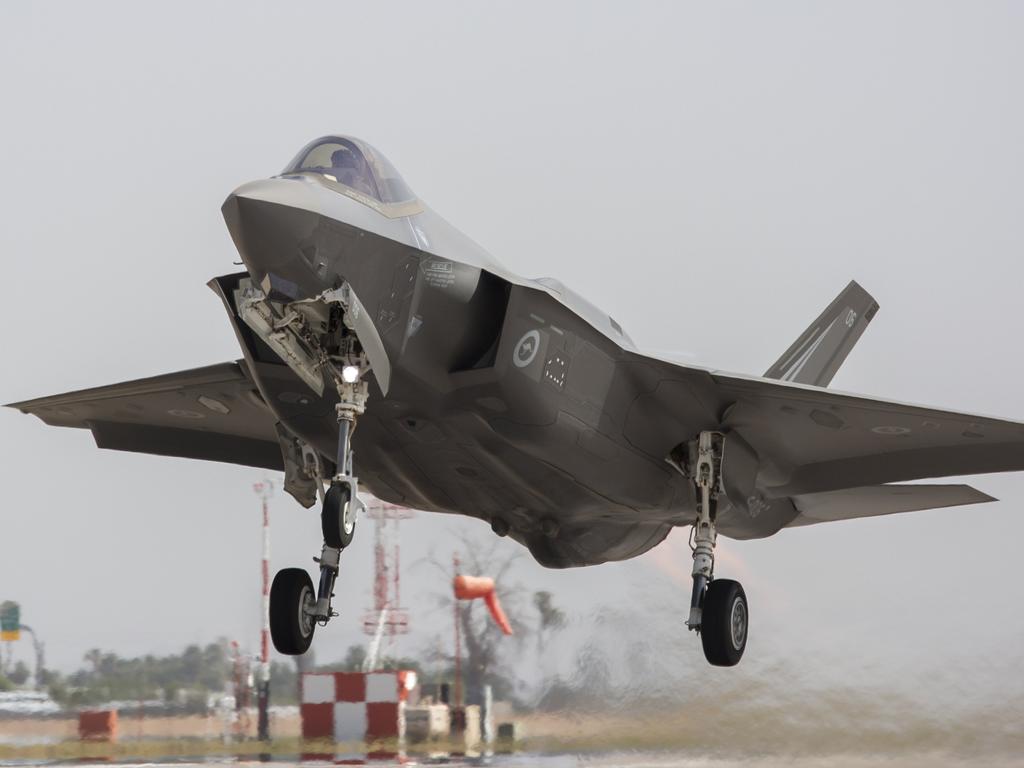





To join the conversation, please log in. Don't have an account? Register
Join the conversation, you are commenting as Logout